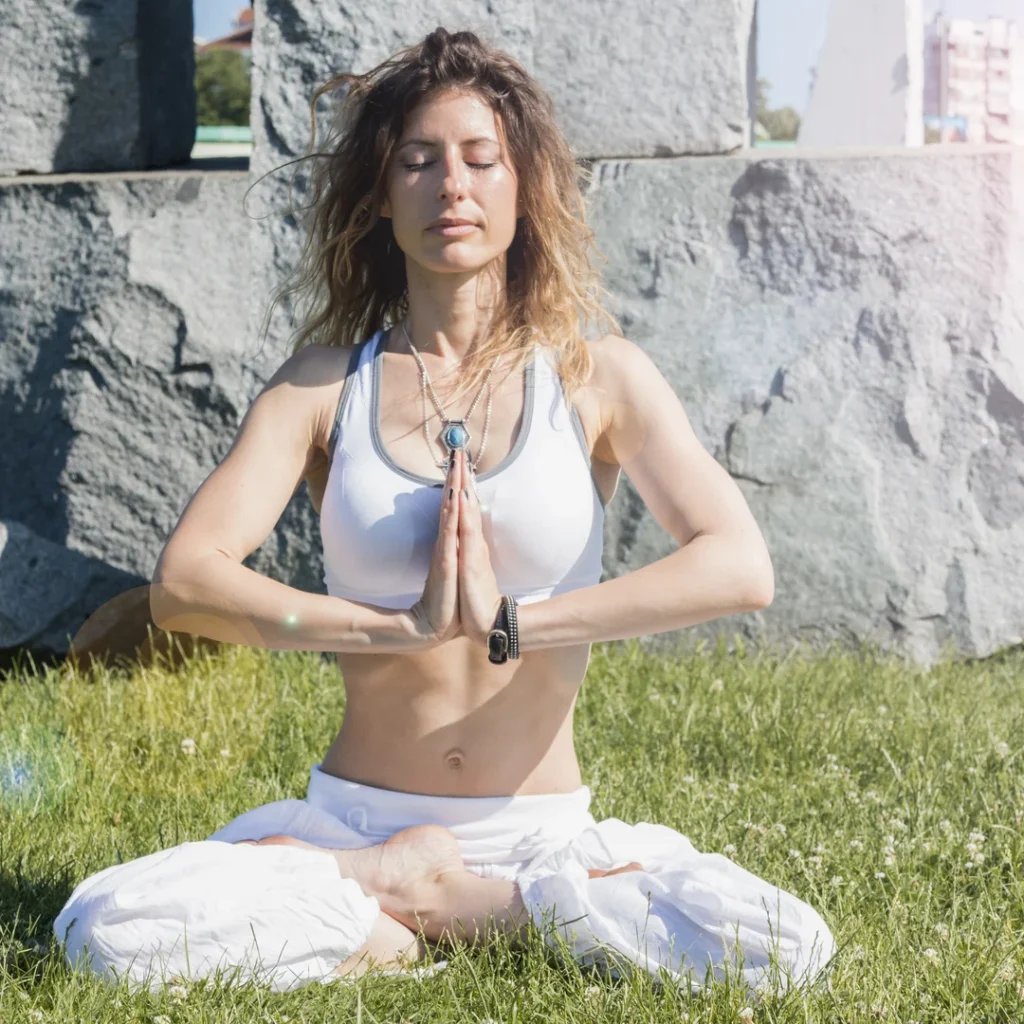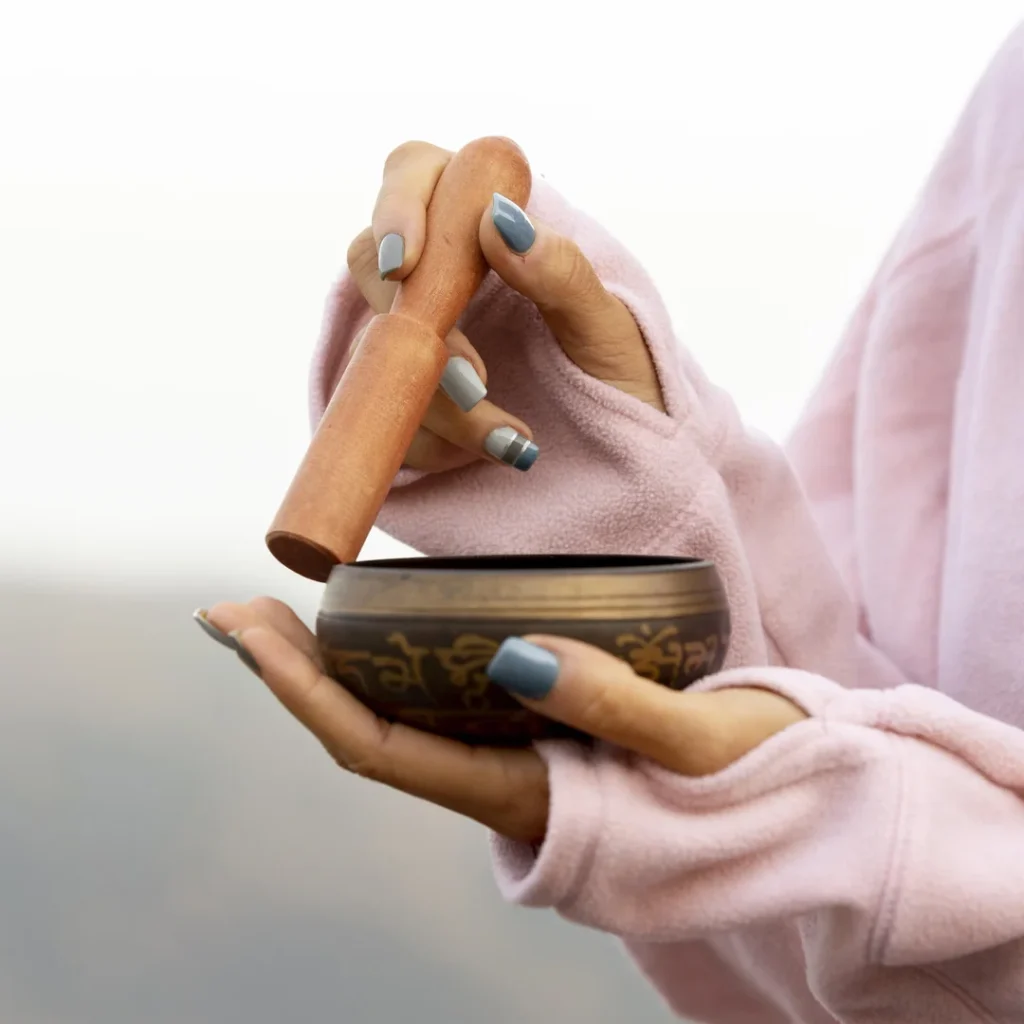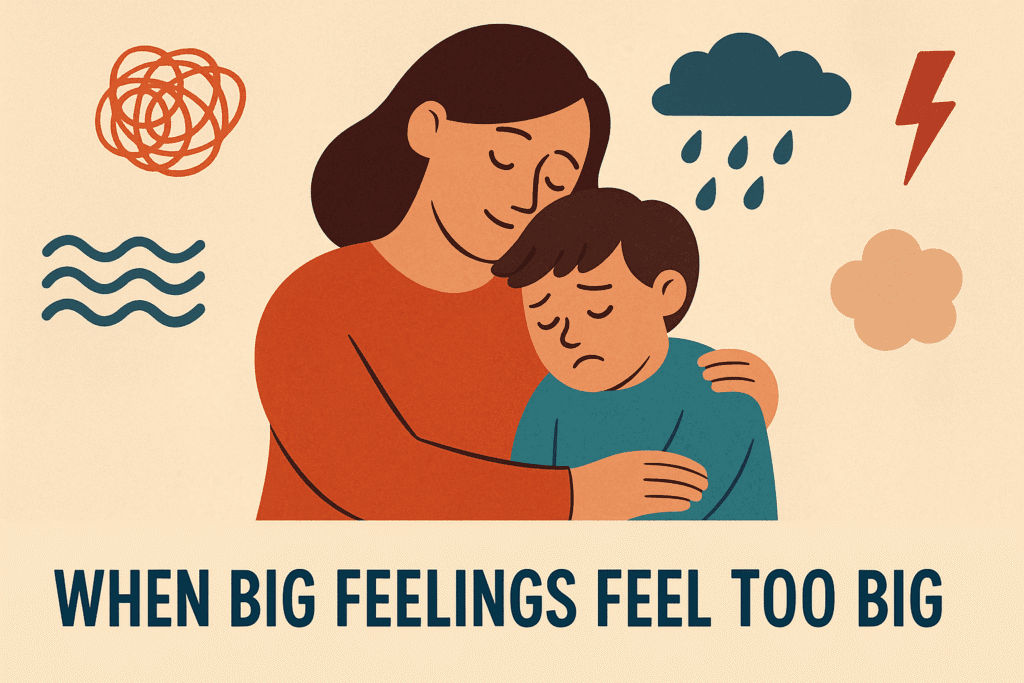Introduction: Mental Wellness Doesn’t Have to Come in a Bottle
Let’s face it—life can get loud. Between the never-ending pings, daily deadlines, and emotional demands, our mental health often ends up pushed to the background. And when things feel overwhelming, it’s easy to assume that the only solution is medication, therapy, or expensive wellness programs.
But what if you could support your mental wellness naturally—with simple, time-tested practices that actually feel good, nourish your soul, and are backed by science?
In this guide, we’ll walk you through 10 natural ways to boost mental health—from ancient rituals to modern habits you can start today. These aren’t just quick fixes—Each of these time-tested practices is a powerful tool to boost mental health without medication.
Table of Contents
1. Ayurvedic Self-Care Rituals: Start Your Day with Intention

Ancient Wisdom: Ayurveda, India’s 5,000-year-old healing system, teaches us that daily rituals—called Dinacharya—can ground us mentally and emotionally. Ayurveda for mental health is more than physical routines—it’s a way to reconnect mind, body, and spirit each day. Simple acts like tongue scraping, warm oil massage (Abhyanga), and mindful breathing calm the nervous system and reconnect you to your body.
Modern Take: Pair these rituals with 5 minutes of guided meditation or journaling.
Try This: Begin your morning with tongue scraping and 2 minutes of self-massage using warm sesame or coconut oil. It sets the tone for a clear, centered day.
2. Pranayama: Breathwork for Instant Calm

Ancient Wisdom: Pranayama, or breath regulation in yogic tradition, activates your parasympathetic nervous system—your body’s natural “chill switch.”
Modern Take: Use guided breathwork apps like Prana Breath or Insight Timer to build a sustainable habit.
Try This: Practice the “4-7-8” technique—inhale for 4 seconds, hold for 7, exhale for 8. Just a few rounds can lower anxiety and boost mental health. Breathwork is one of the quickest ways to experience natural stress relief without needing to leave your space.
3. Digital Detox for Mental Clarity

Ancient Insight: From monks to mystics, spiritual traditions worldwide emphasize withdrawal from stimulation to return to inner stillness.
Modern Reality: Screen time fatigue is real. Constant scrolling increases stress, reduces focus, and disrupts sleep.
Try This: Set a “digital sunset” each evening. Power down devices at least an hour before bed. Use that time for journaling, stretching, or simply being still.
You don’t need to abandon tech—just create healthier boundaries with it. Digital detox for the mind can do wonders.
4. Mindful Eating: Feed Your Mind While Nourishing Your Body

Ancient Wisdom: Ayurveda teaches that how you eat is just as important as what you eat. Mindless meals = mindless living.
Modern Tip: Use apps to gently build mindful eating habits—not calorie counting, just awareness. You can also add superfoods in your diet along with mindful eating.
Try This: Sit down without screens. Take three deep breaths before your first bite. Savor the flavors, textures, and pace of your meal.
This small shift helps reduce stress, improves digestion, and encourages mental wellness naturally.
5. Creative Expression: Turn Emotions into Art

Timeless Truth: Since ancient times, humans have used art to process emotions—think tribal dances, cave paintings, and ceremonial music. Letting emotions flow through creativity is a powerful form of natural stress relief, especially for those who struggle to express themselves verbally.
Modern Boost: Whether it’s doodling, digital photography, or freestyle dancing in your living room, creative expression offers natural stress relief.
Try This: Schedule a “creative hour” each week. It’s not about talent—it’s about release. Your nervous system will thank you.
6. Active Meditation: Movement as Medicine

Ancient Roots: Practices like Tai Chi, yoga, and walking meditation blend breath, awareness, and physical motion into one healing ritual.
Modern Update: Explore YouTube channels or apps that offer moving meditations and mindful stretching. Also, here is a beginner’s guide to meditation.
Try This: Go for a 15-minute walk without music or podcasts. Just breathe, observe, and move slowly. This blends exercise with holistic mental health support.
7. Gratitude Journaling: Rewire Your Mindset

Ancient Insight: Gratitude has long been a core element of spiritual practices, from prayer to poetry.
Modern Research: Gratitude journaling has been shown to increase serotonin and dopamine, improve sleep, and reduce anxiety.
Try This: Each night, write down 3 things you’re thankful for—even tiny ones. Over time, this rewires your brain for optimism and joy.
Want a bonus? Write them down on paper, not an app. The tactile process deepens the emotional impact.
8. Sound Healing: Feel the Frequency of Calm

Old Soul Wisdom: From chanting mantras to singing bowls, sound has been used for millennia to harmonize energy and emotions. Sound healing offers natural stress relief by helping regulate the nervous system and release tension.
Modern Tools: Spotify and YouTube now offer high-quality sound therapy playlists, including theta waves and binaural beats.
Try This: Listen to a 10-minute sound bath while lying down. Focus on how your body feels with each vibration. It’s surprisingly grounding and restorative.
9. Nature Therapy: Let Green Heal You

Ancient Connection: Indigenous cultures around the world viewed nature as medicine—not metaphorically, but literally.
Modern Reality: Studies confirm that just 20 minutes in nature can lower cortisol, reduce rumination, and lift your mood.
Try This: Step outside—barefoot if you can. Breathe in the air, look up at the trees, feel the breeze. Don’t rush it.
10. Mindful Sleep: Make Bedtime Sacred Again

Traditional Insight: Both Ayurveda and Traditional Chinese Medicine stress the importance of deep, high-quality rest to boost mental health and emotional regulation.
Modern Tip: Use sleep hygiene tools—white noise machines, blue-light blocking glasses, and wind-down rituals.
Try This: An hour before bed, turn down the lights, turn off screens, and journal or read something calming. Consider a warm herbal tea like chamomile or tulsi.
When your sleep improves, so does your focus, energy, and emotional balance.
Conclusion: Mental Wellness Is Built One Habit at a Time

You don’t need a prescription to feel better.
You don’t need perfection, either.
You just need small, conscious choices—made consistently.
From ancient healing wisdom to modern mindfulness tools, each of these 10 practices is a step toward mental wellness naturally. Whether it’s the simple act of deep breathing, sitting in silence, or writing what you’re grateful for, it all adds up.
So ask yourself:
What’s one thing I can try today to care for my mind—without needing a pill or a plan?
Start there. Come back to it tomorrow. And let your peace grow, little by little.
Check out our insightful articles on personal growth and wellness at Roots, Wings & Wellness.
- Conscious Living
- Digital Relationships
- Family & Parenting
- Learning & Development
- Mental Well-Being
- Personal Growth
- Quick Read
- Society & Culture
FAQ’s
Yes, you absolutely can. While medication can be helpful for some, many people find that consistent natural practices—like breathwork, mindful movement, time in nature, and better sleep—make a significant difference in how they feel emotionally and mentally. The key is consistency and tuning into what your body and mind truly need.
It varies from person to person, but many people report feeling calmer, more focused, or more emotionally balanced within a few days of starting these habits—especially breathwork, gratitude journaling, or digital detox. That said, real transformation happens over time, so think in weeks or months, not just days. Start small and stay steady.
Begin with what feels easiest and most accessible. For some, it’s a 5-minute breathing exercise. For others, it’s walking barefoot in the grass or putting their phone away before bed. Choose one habit that resonates and commit to it for a week. Let it grow from there—no pressure to do it all at once.
Many of these techniques—like Pranayama, gratitude journaling, and time in nature—are supported by both ancient wisdom and modern research. Studies consistently show they reduce stress, improve sleep, regulate emotions, and even help rewire the brain for more resilience and peace. These aren’t just feel-good practices—they’re effective.
Definitely. These practices are supportive—not competitive. In fact, many therapists encourage mindfulness, movement, or journaling as part of a mental health routine. Just be sure to talk with your provider if you’re making any big shifts in treatment.
Yes! You can keep a simple wellness journal where you note how you feel after each practice. You can also use free apps like Insight Timer (for meditation), Day One (for journaling), or even the screen time feature on your phone to track digital habits. Seeing your progress can be incredibly motivating.















